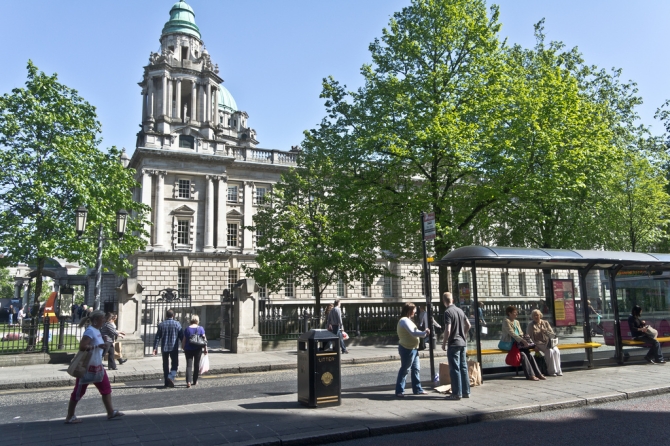Northern Ireland businesses being held back by pre-recession property loans could be helped by a new rescue fund, a senior banker has suggested.

Hundreds of small and medium-sized companies across the province took out property loans during the boom only to find the ongoing repayments are still weakening their core business. Now Kevin Kingston, of Danske Bank, has proposed a dedicated fund — possibly modelled on the Invest NI-backed Growth Loan Fund — that would allow businesses to refinance property debts and repay them over a longer period.
According to InterTradeIreland’s Access To Finance report, almost 30 per cent of Northern Ireland’s medium-sized businesses bought property in recent years using bank debt, commitments which are now putting major pressure on cash flow and holding back growth. The report also found that companies with property overhang were four times more likely to have sought additional bank finance, but were also more likely to have had trouble in accessing the finance they need.
The proposal, by the deputy chief executive and managing director of business banking at Danske Bank, is for a “mezzanine” loan fund that would help tackle property issues. Mezzanine loans are typically more flexible than traditional bank financing and involve an element of equity investment or repayments that are concentrated at the end of the loan period. Most are also subordinated to other bank loans, allowing the main bank lender to get its money back first if the firm went bust.
The existing £50m Growth Loan Fund — half from Invest NI and half from the NI Civil Service pension fund— is also a mezzanine fund and, says Kingston, “it has worked very well to date, with 60 commercial loans worth £18m approved in the past 18 months. A similar approach could be used to refinance residual property debt where it is holding back the growth of good local trading businesses”.
One source of finance for any new fund, Kingston suggests, is the British Business Bank, run by the UK Government’s Department for Business, Innovation and Skills. With that kind of backing the new fund would enable struggling firms “to take a longer-term approach to repaying and reducing legacy property debt”.
Typically, banks offer loans for periods of about three to five years. It is thought that a rescue fund would have to make loans of 10 or 15 years. But, conceded Kingston, his proposal would not work in every instance, especially for firms that have very large property debts. “If such a fund is to be effective,” he added, “it should be targeted at business which would probably make it anyway, but would otherwise find their cash flow being consumed by loan repayments rather than being targeted at growth.”
A number of Northern Ireland firms have already fallen into administration largely due to property debts, among them the construction firm Patton and utilities contractor KPL with the loss of 200 jobs.
Previous Post
Co-op plans Large Scale Shop Acquisitions